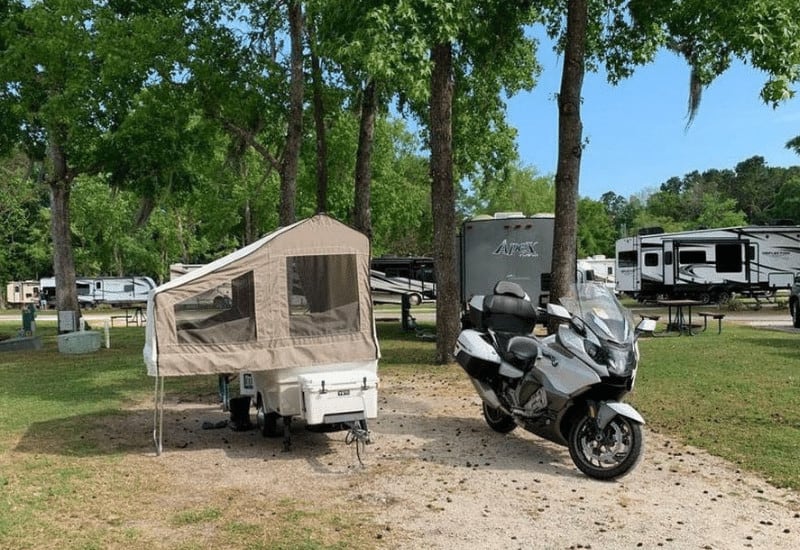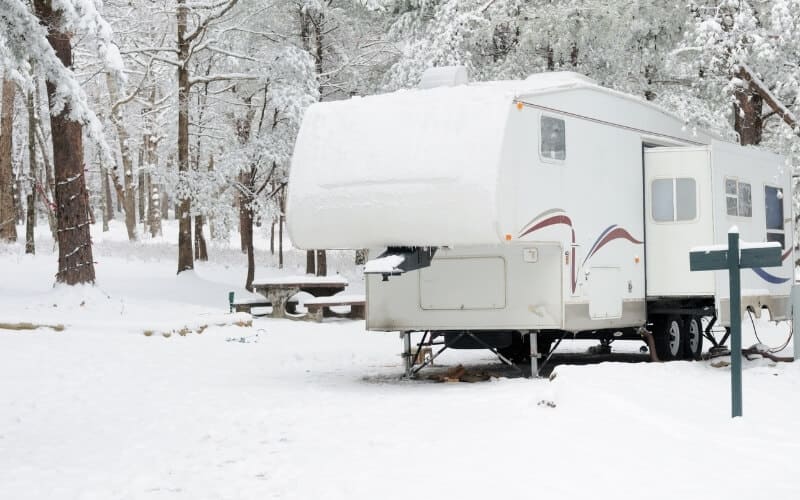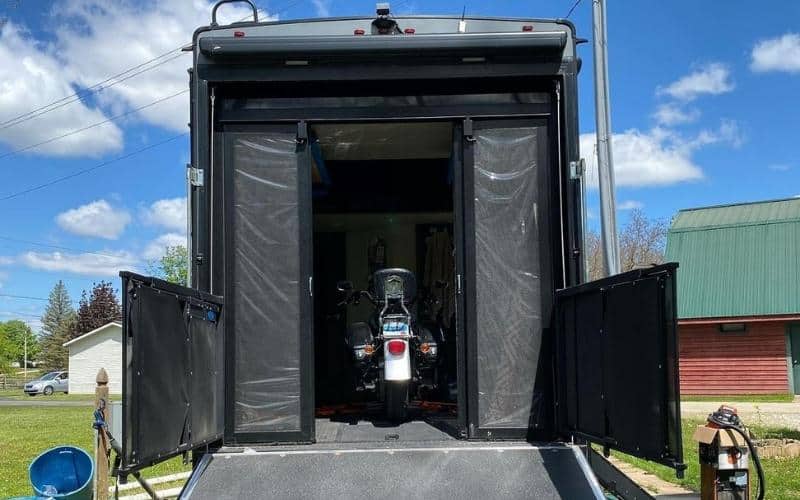Do you want to know the difference RV and a camper?
Let’s clear up the confusion. An RV is a motorized vehicle featuring living quarters, driving capabilities, and utilities such as kitchens, baths, and sleeping facilities. A camper is a towable item that can be connected to a vehicle and provides living accommodations but does not have a motorized engine.
As someone who enjoys exploring the great outdoors and enjoying the freedom of mobile life, I recognize the significance of distinguishing between an RV and a camper. Throughout my comprehensive investigation, I’ve discovered various facts and insights that throw light on this subject.
In the following sections, we’ll go through both alternatives’ features, benefits, and considerations in further detail.
So, let’s go on this expedition together and explore the world of mobile living to choose the best option for your next trip!
RV Vs. Camper
Here are the differences between a standard RV and a camper, based on various important aspects like size, cost, and more.
| Aspect | RV | Camper |
| Size | Larger and offers more living space | Smaller and compact |
| Mobility | Motorized and self-propelled | Towed behind a separate vehicle |
| Vehicle integration | Combined living and driving quarters | Living space is separated from the towing vehicle |
| Amenities and features | Extensive amenities and luxuries | Limited amenities and basic features |
| Customization and flexibility | Can be customized and modified | Limited customization options |
| Cost | Higher upfront and maintenance costs | Lower upfront and maintenance costs |
| Maintenance | More complex maintenance and repairs | Simpler maintenance and repairs |
| Sleeping capacity | Typically offer more sleeping space | Limited sleeping capacity |
| Storage space | More storage space is available | Limited storage space |
| Level of comfort | High level of comfort and convenience | Basic comfort and functionality |
What’s Better, An RV Or A Camper?
Choosing between an RV and a camper depends on personal tastes, travel style, and individual needs. Both choices have distinct advantages and disadvantages that you should examine before making a choice.
RVs, often known as motorhomes, are self-contained vehicles with living space and driving capabilities. They give you the benefit of the facilities you need for traveling, such as a kitchen, bathroom, sleeping rooms, and entertainment systems.
RVs are often larger and provide a better level of comfort and convenience. They suit longer journeys or individuals seeking a more comfortable and self-contained travel experience.
On the other hand, campers, sometimes known as travel trailers or towable RVs, are units towed behind a car. You can find them in different combinations, ranging from tiny to bigger fifth-wheel trailers. Campers allow you to separate from the towing vehicle, making it possible to utilize it for local transit while on your trip.
Campers are often less expensive than RVs and can have great features for a more limited budget. They are ideal for individuals who enjoy the independence of leaving the camper behind and driving their cars around while on a camping vacation. They may be better suited for shorter holidays or frequent campground changes.
Consider the size, affordability, upkeep, towing capability, and the amenities and comfort you want when choosing between an RV and a camper. It might be beneficial to visit RV dealerships, attend RV events, and test drive several models to determine what best meets your needs.
RV VS Camper – Pros And Cons
| RVs | Campers | |
| Pros | Motorized with driving capabilities | The cost-effective, lower initial cost |
| More living space and amenities | Easier to maneuver and park | |
| Can tow a vehicle behind | Lower maintenance and fuel costs | |
| Provides a dedicated vehicle and living space | Versatile, detachable from the vehicle | |
| Suitable for long-term travel and full-time living | Provides a compact and cozy living space | |
| Cons | Higher initial cost and maintenance | Limited living space and amenities |
| Require more storage space | No driving capabilities | |
| More complex to operate and maintain | Limited interior customization | |
| Can be challenging to park and maneuver | Less suitable for larger families | |
| May have restrictions in certain areas | Requires separate vehicle for transportation |
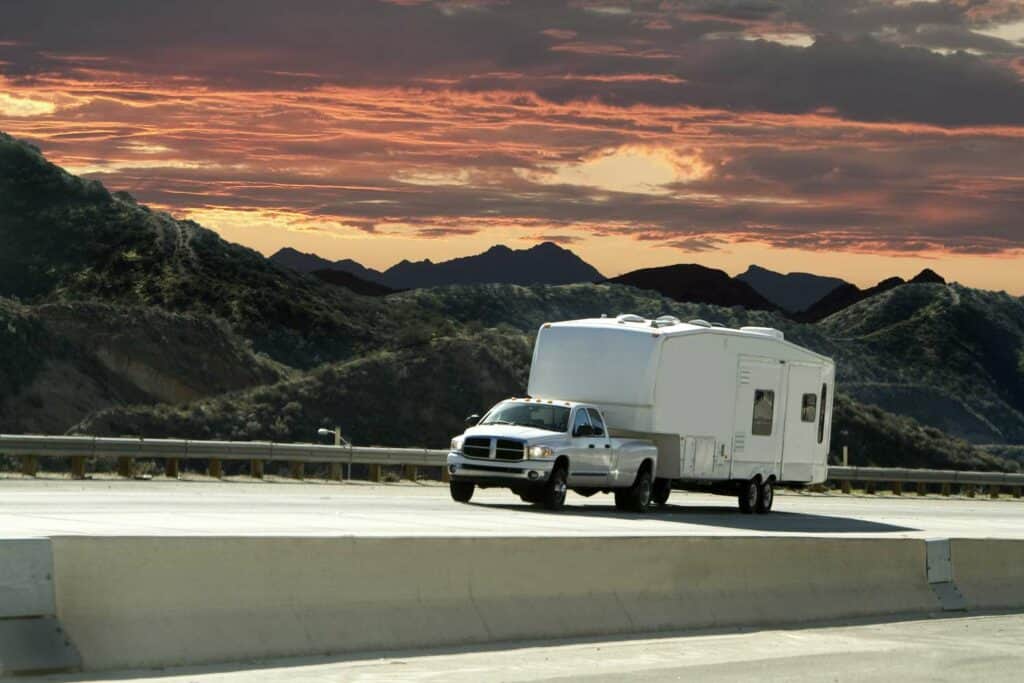
Is It Easier To Drive An RV Or Pull A Camper?
Regarding driving, RVs and campers each have unique concerns and obstacles. The ease of driving varies according to vehicle size and weight, driving experience, road conditions, and personal comfort level.
Due to its enormous size and weight, driving an RV can be difficult. Enrolling tiny places, narrow roadways, or congested locations may require more caution and ability. However, after you’ve gotten used to the size and handling of an RV, it offers the convenience of having all your living facilities in one place.
On the other hand, pulling a camper can be a lot easier. Since campers are smaller and lighter than RVs, they are easier to pull behind a car. They may be pulled by different types of automobiles, depending on their weight and the vehicle’s towing capabilities.
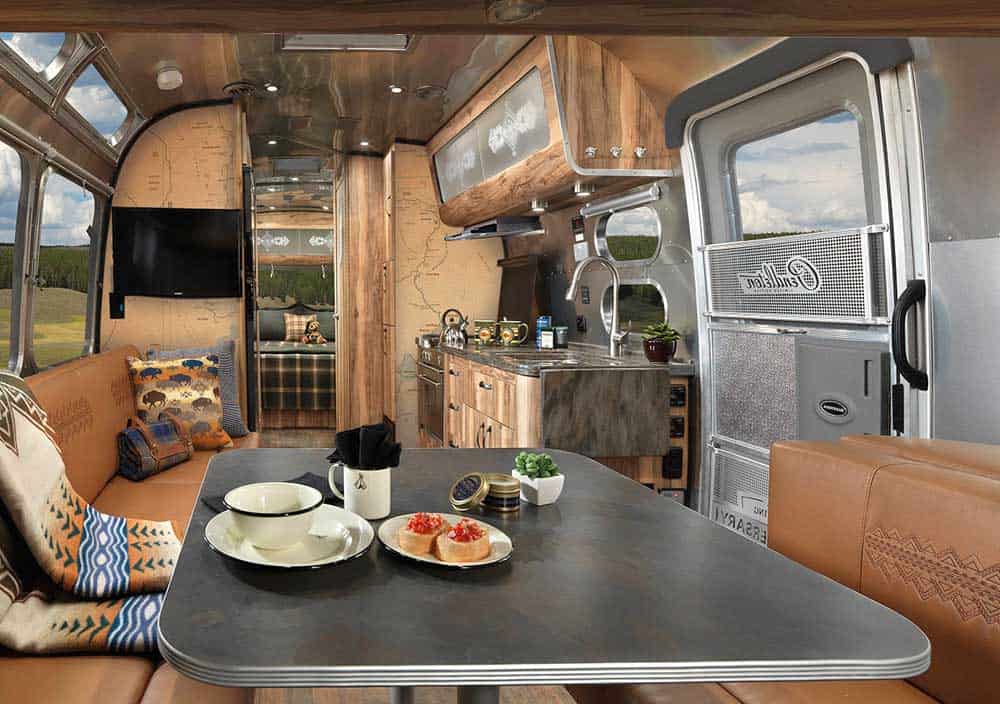
Final Verdict: Which Is Best Based On Our Testing And Experience?
Based on our testing and expertise, our choice between an RV and a camper favors the RV. We thoroughly tested top-of-the-line models from both categories to assess their performance, features, and overall user experience.
The Allegro Breeze BR33 was the top-of-the-line RV we evaluated, featuring cutting-edge conveniences and great aesthetics. It had plenty of living space, including a fully equipped kitchen with high-end appliances, a cozy bedroom, and a queen-size bed. It also has a bathroom with a large shower.
To improve the vacation experience, the motorhome included modern technological solutions like integrated entertainment systems and climate control. The RV’s strong engine, fluid handling, and enhanced safety systems made driving a delight.
In comparison, the Jayco Eagle 332CBOK was the top-of-the-line camper we examined. This camper provided a small but useful living space with a well-designed kitchenette, a comfortable sleeping area, and a small bathroom. While the camper did not offer the same degree of luxury and space as the RV, it did give a comfortable and convenient travel experience.
While the RV and the camper had advantages, the RV stood out for its overall comfort, amenities, and mobility. The RV’s roomy interior, extensive amenities, and seamless integration of living and driving areas made it an excellent option for those who want a comfortable and self-contained vacation experience.
The best option ultimately relies on personal tastes, travel demands, and economic limits. Some people prefer the price and flexibility of a camper, especially for shorter vacations or frequent campground changes. Before making a selection, it is advised that you carefully analyze your requirements and preferences so that you know what you are looking for.
Conclusion
When deciding whether an RV or a camper is best for your needs, assess the advantages and downsides along with your tastes. Here are some crucial points from our comparison:
- RVs provide more extensive and elegant living quarters with full kitchens, baths, and comfy sleeping places.
- Campers are often less expensive and provide more flexibility for individuals who like to tow their lodging.
- Driving an RV necessitates a larger vehicle and more skill, although towing a camper might be easier for those with experience.
- RVs offer a more integrated vacation experience since they allow you to live and drive in the same vehicle.
- Campers are better suited to shorter journeys with frequent campground changes.
- When picking between an RV and a camper, consider your budget, desired degree of comfort, and the travel experiences you wish to enjoy.
The decision between an RV and a camper ultimately boils down to personal preference, travel style, and money. Both alternatives may give delightful and memorable travel experiences, so select the one that best meets your requirements and tastes. Travel safely!
Frequently Asked Questions (FAQs)
- Are RVs more expensive than campers?
RVs typically cost more upfront due to their larger size and additional amenities. However, campers can also vary in price depending on their features and quality.
- Can I tow a camper with my current vehicle?
It depends on your vehicle’s towing capacity and the camper’s weight. It’s important to check your vehicle’s specifications and ensure it can safely tow the camper you’re considering.
- Do I need a special license to drive an RV?
The requirements for a special license vary by state and depend on the size and weight of the RV. A regular driver’s license is often sufficient, but checking your state’s regulations is important.
- How much maintenance do RVs and campers require?
RVs and campers require regular maintenance to ensure good working conditions. You must also maintain the plumbing and electrical systems and inspect the exterior for any damage.
- Can I live in an RV or camper full-time?
Many people choose to live in RVs or campers full-time. Still, it’s important to consider factors like legal requirements, access to amenities, and the practicality of long-term living in a smaller space.
- Are there restrictions on where I can park or camp with an RV or camper?
There may be laws that dictate where you can park or camp with an RV or camper, depending on regulations in your area. Researching and abiding by any rules and restrictions in the areas you plan to visit is important.
- Can I finance the purchase of an RV or camper?
Financing options are often available for RVs and campers, allowing you to spread the cost over time. It’s advisable to compare loan terms and interest rates.




